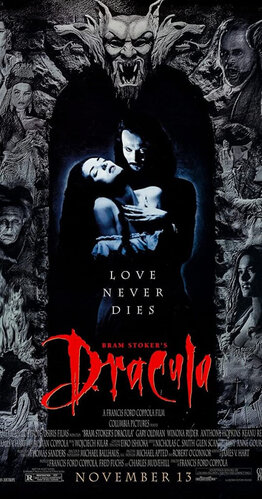Why are vampires so popular in pop culture?
I mean, sure, Count Dracula wore nice clothes — black tie for dinner and all — and he lived in a castle, but he was so creepy.
Bela Lugosi launched a career scaring the heck out of moviegoers in 1931’s Dracula.
I watched it as a kid on late night “Creature Feature” TV shows in the1960s. Deep psychological messages escaped me at the time. Perhaps I was too busy bonking my little brother over the head with a pillow to get to the popcorn.
Scholars have plumbed the mystery, however, and come up with some interesting ideas.
“Well, of course it has to do with sex,” Thomas C. Foster writes in his excellent, popular book, How to Read Literature Like a Professor. “Evil has to do with sex since the serpent seduced Eve. What was the upshot there? Body shame and unwholesome lust, seduction, temptation, danger, among other ills.”
It’s also blasphemy.
When I asked vampire cult member Scott Anderson about drinking blood, he remarked, “People do it in communion.”

The difference is that Christians symbolically drink the blood of Christ during the Lord’s Supper to mark his supreme sacrifice to save our souls. Dracula, immortalized (pun intended) by Bram Stoker in 1871, featured a character intent on stealing souls.
For thrill seeker Rod Ferrell, the vampire was the perfect role model.
“Your deepest fantasies, not hidden, your heart’s desires. That’s what the world consists of for a vampire,” he said in a 2003 interview on Discovery ID.
What are your thoughts? Do you agree or disagree with the experts’ analysis? With Ferrell’s interpretation?

Leave a Reply
You must be logged in to post a comment.